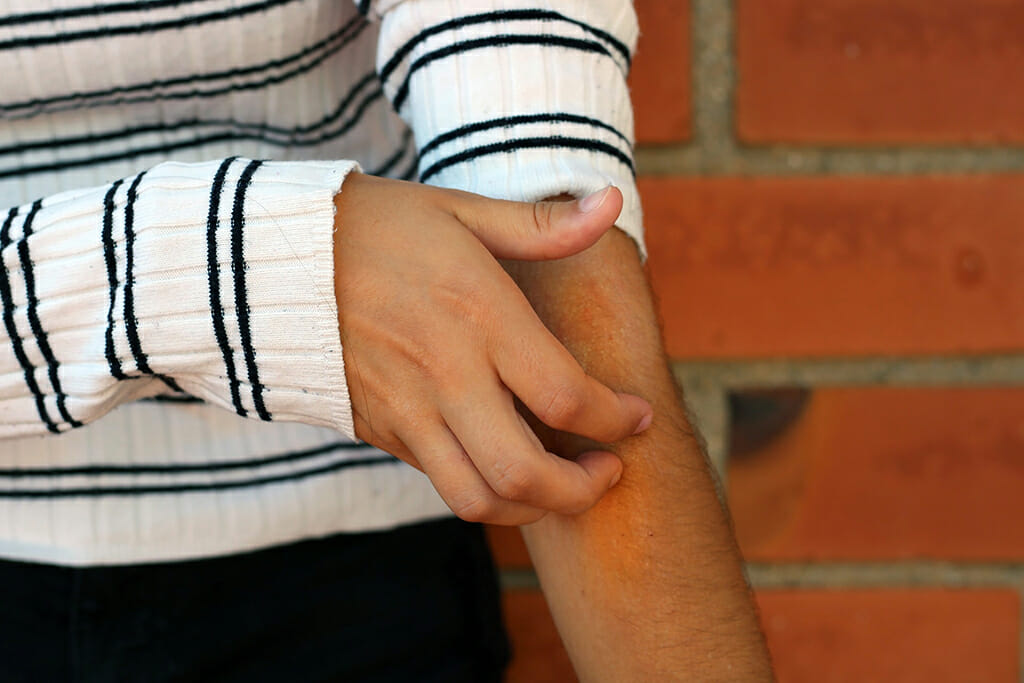When LEO Pharma set out to capture the challenges of living with atopic dermatitis (AD), the most common form of eczema which affects around 26 million Americans, they took an unusual approach. First, the company bought patient advocate Ashley Ann Lora a plane ticket to Europe.
Lora then traveled to France, Italy, Germany and Spain, meeting with women living with AD in each of those countries, to record video testimonials that are now the centerpiece of the AD Days Around the World campaign.
As the women share their common experiences and their individual solutions for managing the condition, the popular approach highlighting patient experiences offers an international perspective.
A major takeaway from the video, which runs for just under four minutes, is powerful if arguably not that surprising: there is a community of people living with AD who have much in common despite geographic and linguistic differences.
“No matter where you go in the world, there are people who can understand what you’re going through,” Lora says. “That’s a powerful perspective to carry around with you.”
It’s a universal theme that she says has resonated with participants in support groups that she leads.
In addition to helping eczema patients discover that they belong to a larger, global community, Lora hopes the campaign will help viewers understand how people living with AD experience the disease.
“People who don’t have eczema should know that it impacts us way beyond just the physical sense,” she explains. “For someone like me, people may look and think, ‘You don’t look like you have bad eczema.’ What people don’t know is that there’s an internal feeling and a deep itch that happens underneath the skin for what feels like almost 24/7. I hope that people through this campaign get to understand that eczema affects us way beyond just the physical sense. It affects us mentally, psychologically, financially, you name it.”

While the goal of the campaign was to capture some voices of a global community, the AD Around the World effort could perhaps more accurately be described as AD Around Europe — at least in this first iteration. The Denmark-based pharma company plans to bring voices from other continents into the conversation, however.
“We worked with patient organizations across Europe and were looking for men and women to share their stories of how they live and deal with atopic dermatitis,” Judit H. Nyirady, VP of LEO Pharma A/S Global Medical Affairs, says. “These were the first women who were willing to engage with us and our host, Ashley Ann Lora. We will continue the campaign and reach out to more patients asking them to join.”
While this initial phase of the campaign will run through the end of November, a second one will launch next year and is set to include more voices from the United States as well as patients from Asia.
Nyirady also emphasizes the psychological impact of AD — the constant itch to paraphrase Lora — and how the campaign can provide a sense of community as well as the promise of solutions.
“This is a disease with a heavy burden, not only just in terms of the inflammation by itself, but also for the emotional and psychosocial consequences. Many people don’t know a life without atopic dermatitis. This is how they grew up,” she says. “It’s a debilitating disease with flares where you have intense itching and you cannot sleep. So they spend hours taking care of their skin, they are isolated from society and often they become withdrawn. It’s important to share these stories to let patients know they are not alone and that they can seek help.”
In addition to the video itself, the campaign website steers patients towards resources with links to AD organizations in four countries and information on both signs/symptoms and causes/triggers of AD. A downloadable guide is intended to facilitate patient conversations with their HCPs about eczema and AD.
Nyirady believes that much of the value of the campaign lies in its ability to help patients educate their doctors.
“I am a dermatologist myself. I am quite aware of atopic dermatitis and what it means for patients,” she says. “But raising awareness not only for patients but also for physicians will help this atopic dermatitis community to really improve the quality of life of these patients. It helps the patients, the caregivers and the physicians to engage in these conversations.”







